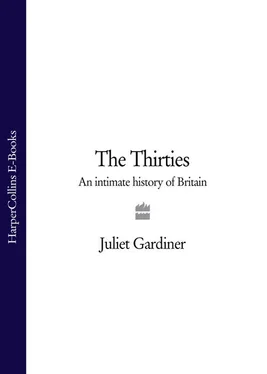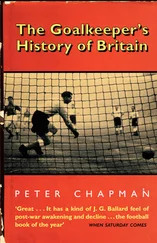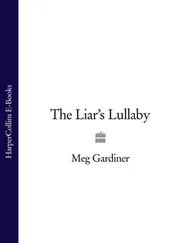In coalmining areas such as South Wales, the Lowlands of Scotland and Lancashire, the future was bleak. Men had no work in the pits; women were laid off from the textile mills. British exports were no longer competitive in the world market. Labour costs were high — nearly double what they had been in 1914 — whereas the cost of living had only risen by 75 per cent, and the average working week had been reduced by ten hours. In crude terms, those in work were being paid more for working less. Hence the tensions between employers and their workforces — particularly in the mining industry — when international competition undercut prices and eroded markets.
How would Britain be governed, now that the old duopoly of Conservative and Liberal had been definitively replaced by new sparring partners: Labour and Conservative, alternating in power since neither seemed to have satisfactory answers to the country’s economic and social ills. Would the bitter legacy of the 1926 General Strike be gradually softened, even though its collapse had brought no resolution to the fundamental problems that had caused it?
On 24 October 1929 on the floor of the New York Stock Exchange, ‘12,894,650 shares changed hands, many of them at prices that shattered the dreams and hopes of those who had owned them’, wrote the economist J.K. Galbraith in his book The Great Crash . Prices on the US market went into freefall, and financial companies as well as individual men and women who had speculated on the over-buoyant American economy lost their fortunes, or their modest savings, overnight. On that ‘Black Thursday’ (which would be followed by ‘Black Monday’ and ‘Black Tuesday’) a record 12.9 million shares were traded: the press reported losses of $30 billion over four days, and there were rumours that eleven speculators had already committed suicide. Watching the ‘wild turmoil’ on the floor from the public gallery of the New York Stock Exchange was Winston Churchill, former British Chancellor of the Exchequer, ‘he who in 1925 had returned Britain to the Gold Standard and the overvalued pound. Accordingly he was responsible for the strain that sent Montagu Norman to plead in New York for easier money, which caused credit to be eased at that fatal time, which, in this academy view, in turn caused the boom. Now Churchill, it could be imagined, was viewing his awful handiwork.’ However, there is no record of anyone having reproached him. Economics was never his strong point, so (and wisely) it seems most unlikely that he reproached himself. But, having invested heavily in the market, he himself lost a large percentage of his savings when it crashed, though he waxed philosophical: ‘No one who has gazed on such a scene could doubt that this financial disaster, huge as it is, cruel as it is to thousands, is only a passing episode.’
The US market continued to decline, reaching its lowest point in July 1932, when it had fallen 89 per cent from its peak in 1929. Unemployment went from 1.5 million in 1929 to 12.8 million, or 24.75 per cent of the workforce, by 1933. ‘Liquidate labor, liquidate stocks, liquidate the farmers, liquidate real estate,’ the Secretary of the Treasury, Andrew Mellon, had advised. ‘It will purge the rottenness out of the system … People will work harder, live a more moral life. Values will be adjusted and enterprising people will pick up the wrecks from less competent people.’
The Great Depression bit deeper in America (as it did in Germany) than it did in Britain, and lasted much longer, but although J.M. Keynes couldn’t help ‘heaving a big sigh of relief at what seemed like the removal of an incubus which has been lying heavily on the business life of the whole world outside America’, the effect of the Wall Street Crash on trade worldwide would prove deleterious in the next few years. The US government initially raised tariffs against foreign imports and its overseas investment all but dried up, forcing Europe to pay for imports and pay off debts in gold which was sucked into the vaults of America (and France, which had somehow managed to stand aside from the economic crisis). This had serious long-term consequences for the international circulation of money, and led to a collapse in commodity prices and an economic slowdown. ‘Almost throughout the world, gold has been withdrawn from circulation. It no longer passes from hand to hand, and the touch of metal has been taken from men’s greedy palms’ Keynes noted.
Yet, speaking only a matter of weeks after that cacophony of black days in New York and growing anxiety about their effect on Britain’s already ailing, out-of-joint economy, Gerald Barry thought he saw some scattered green shoots, a few straws in the wind that he might clutch at: the summer of 1929 had witnessed a lockout in the cotton industry which was solved, he said, ‘on the principle of rough justice whereby Solomon cut the baby in half’, meaning that each side agreed to accept 50 per cent of what it wanted. He was optimistic that the rapprochement between capital and labour begun in 1929 by the Melchett-Turner conversations (tentative corporatist interchanges between Lord Melchett — or Sir Alfred Mond, as he had been until 1928 — chairman of the recently amalgamated giant chemical firm ICI, and the trade union leader Ben Turner, which ultimately led nowhere) had been ‘further cemented’. And he also saw signs of co-operation paying dividends in agriculture, ‘that Cinderella of home industries’, with initiatives from the Ministry of Agriculture for a series of marketing schemes for foodstuffs such as flour, fruit, eggs and meat.
The shadow of the Great War had darkened the 1920s; in the 1930s men and women would grow to maturity who had no memory of that terrible carnage, and on the cusp of the decades international peace and accommodation seemed assured, with the Labour Foreign Secretary Arthur Henderson’s agreement to withdraw the last British troops from the Rhine. Confrontations between the incorruptible Labour Chancellor of the Exchequer Philip Snowden and the ever-rotating French Finance Ministers showed, however, that tensions over the peace treaty of 1919 were by no means entirely relaxed, and the issue of war debts to the United States continued to be a live and fractious issue. Even so, perhaps Barry’s optimism was justified. Perhaps Britain’s economic and social ills really could still be put down to the working out of the dislocations of war, the turbulence could be expected to fade away, the normal rhythms of trade and production would reassert themselves, and British society would return to an equilibrium that it had, in fact, never really known.
… An utterly lost and daft
System that gives a few at fancy prices
Their fancy lives
While ninety-nine in the hundred who never attend the banquet
Must wash the grease of ages off the knives …
Louis MacNeice, ‘Autumn Journal’ (1939)
The post of Poet Laureate, official versifier, has had a chequered history. Originating with John Dryden in 1670, it has had its peaks — Wordsworth, Tennyson — and its troughs — possibly Colley Cibber, possibly Robert Southey (who only got the laurel wreath because Sir Walter Scott declined), certainly Alfred Austin (who was wheeled on because William Morris refused). When the scholarly, pantheistic Robert Bridges (who was only in post because Rudyard Kipling had said no) died on 21 April 1930, the honorary position as a member of the royal household (ranking between the Gentleman Usher of the Black Rod and the Marine Painter in the arcane hierarchy), carrying a nugatory stipend, was offered to John Masefield. He had his doubts: ‘I can write verse only in moments of deep feeling … this may perhaps be a disqualification,’ he wrote on 30 April to Ramsay MacDonald, who had offered to submit his name for royal approval — a mere formality, particularly since it was rumoured that Masefield was George V’s favourite poet. The Prime Minister must have had many more pressing matters on his mind, but he took time out to reply to the havering fifty-one-year-old poet, reassuring him that should the spirit move him, he could ‘write odes and such things’ on occasions of national import, but if it did not, he could keep quiet. Masefield accepted, but made it clear that as a writer committed to the cause of ‘the man with too weighty a burden, too heavy a load’, he would not define his task as being to acclaim ‘The princes and prelates with periwigged charioteers/Riding triumphantly laurelled to lap the fat of the years’. He would hold the post for thirty-seven years until his death in 1967, a longer tenure than any of his predecessors except Tennyson.
Читать дальше












